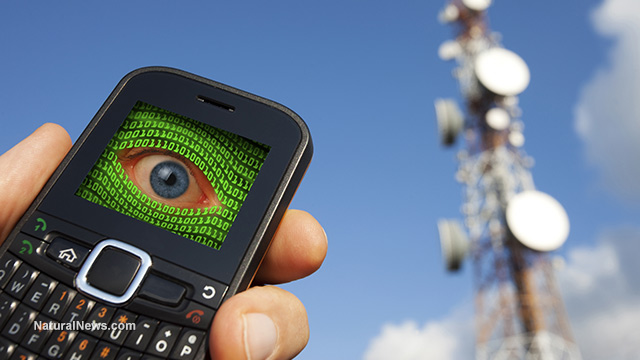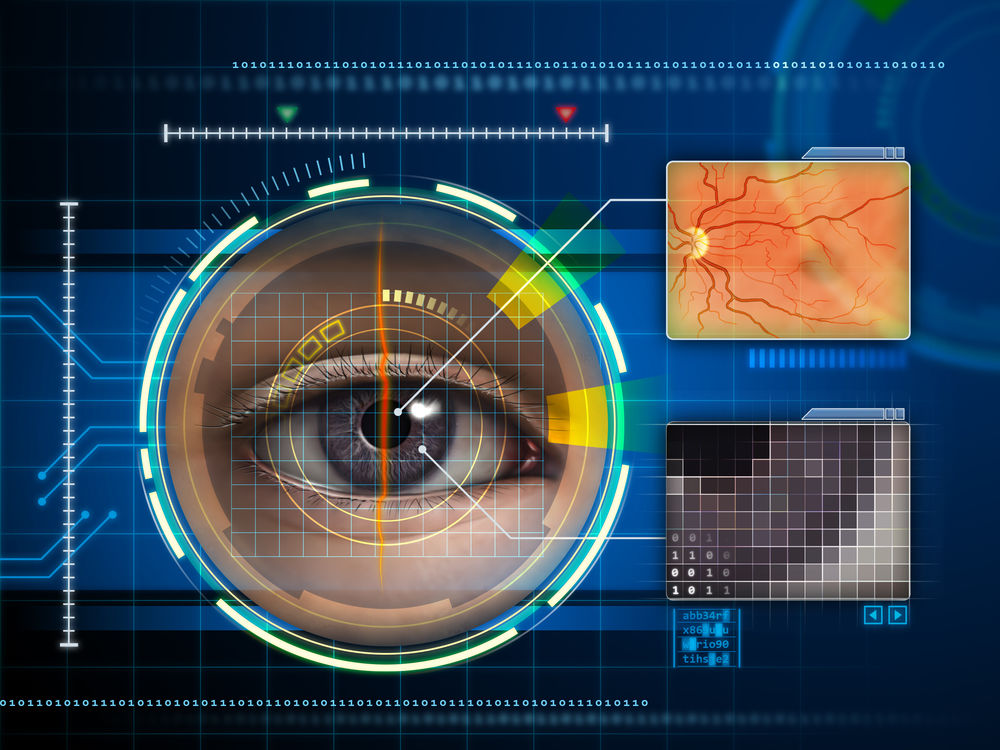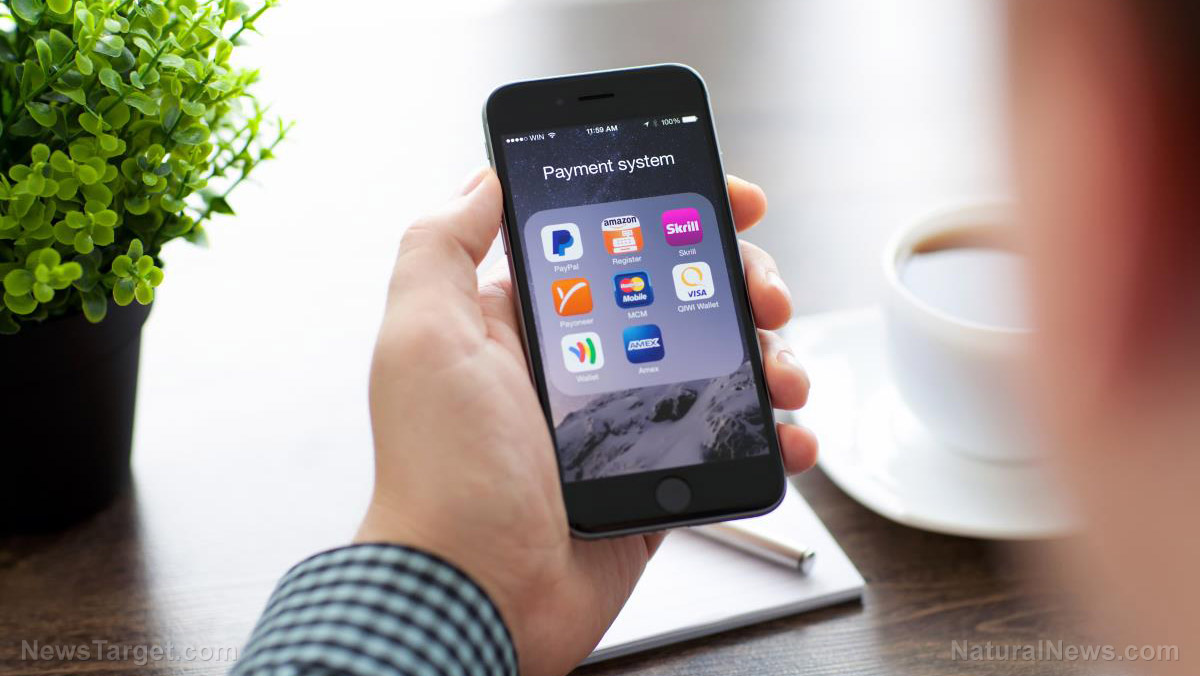Digital spy: Study reveals phone apps could be hiding spyware that can leak personal data
07/13/2023 / By Zoey Sky

Smartphones are useful and powerful devices, but a study has found that they may compromise your data through spyware apps.
The study, which was conducted by computer scientists from New York University and the University of California San Diego, focused on the hidden dangers of spyware apps.
These apps can be difficult to detect, and they can also leak your sensitive information without your knowledge. The researchers warned that smartphone users must be aware of this issue and take steps to protect themselves and their privacy.
They see you: The dangers of spyware apps
Enze Alex Liu, the first author of the paper, warned that spyware apps are a “real-life problem.” Liu added that they wanted to “raise awareness for everyone, from victims to the research community.”
Spyware apps are often marketed as tools to monitor the online activity of children or employees, but they can also be used by abusers to spy on their significant others.
Spyware apps are designed to record everything that happens on a victim’s device, like their text messages, emails, phone calls and photos. Abusers can access this information remotely through a web portal.
Experts warn that the use of spyware apps has been on the rise, with a significant increase in downloads and usage in the last few years. (Related: AI surveillance tech can find out who your friends are.)
If you think your phone or other gadget has been infected with a spyware app, check your privacy dashboard and the list of all your apps in the device’s settings. But since these apps are specifically designed to remain hidden, they can sometimes be difficult to detect.
In the study, the researchers focused on analyzing 14 leading spyware apps for Android phones.
Google does not allow the sale of these apps on its official app store, but you can still download the apps separately from the web. Meanwhile, iPhones do not allow the “side-loading” of apps, making spyware apps less prevalent on Apple smartphones.
Decoding spyware apps
Spyware apps run secretly on a device and it can collect a range of sensitive information like your location data, text messages and calls. These apps can even collect audio and video recordings.
Some spyware apps can also stream live audio and video. All this data is then sent to the abuser through the specified online spyware portal.
The researchers found that spyware apps use different techniques to collect data without the user’s knowledge. Some apps can even use invisible browsers to stream live video from the device’s camera to the spyware server.
Other apps record phone calls by activating the device’s microphone or speaker function. In some cases, some apps will take advantage of accessibility features designed for visually impaired users to record user keystrokes and other sensitive information.
Spyware apps can also “hide” themselves on your device. They can avoid appearing in the app launcher or they can pretend to be harmless icons like “Wi-Fi.”
Some apps will accept commands through SMS messages, with several apps executing these commands regardless of the source. In extreme cases, a hacker can send a command to remotely wipe the victim’s phone.
Data security is another major concern. Many spyware apps transmit the collected data through unencrypted channels, which makes them vulnerable to interception by other hackers.
Some apps store this data in publicly accessible URLs, allowing anyone with the link to access it. Other apps will retain sensitive data even after you have deleted your account or stopped using the app.
How to protect yourself from spyware
The researchers warned that Android devices must enforce stricter requirements for app icons to prevent them from hiding on your device. They also suggest the implementation of a dashboard so you can easily monitor apps that start automatically.
The researchers also suggested adding a visible indicator to the user when the microphone or camera is being used by an app to alert them if someone is trying to record them.
While the researchers have already shared their findings with the affected app vendors, they still haven’t received any responses. To prevent misuse, the research team decided to make their work available only to individuals who can demonstrate a legitimate need for it.
Effectively protecting users against spyware requires a collective effort from stakeholders, including users, smartphone manufacturers, app stores and law enforcement agencies.
As smartphone users, you must stay vigilant and take steps to protect your privacy.
Here are some tips that will help protect your device from spyware:
Download apps from official app stores
Never download apps from unknown sources or third-party websites.
If you want to download an app, use the Google Play Store or Apple App Store. Official app stores enforce strict security measures to minimize the risk of spyware-infected apps.
Review app permissions
When downloading a new app, check the permissions requested during installation.
Check the app again if it asks for unnecessary permissions that seem unrelated to its functionality. If an app that has nothing to do with recording videos or taking photos requests access to your camera, microphone or other sensitive data without a legitimate reason, the app might be spyware.
Update your device regularly
It’s best to keep your smartphone’s operating system (OS) and apps up to date. Developers release regular updates to fix security vulnerabilities and enhance overall device security.
Updating your apps and phone OS can help ensure that your smartphone has the latest security patches to protect against potential spyware threats.
Regularly review app permissions
Regularly review the permissions granted to all apps installed on your device. Revoke unnecessary permissions for apps that do not require access to certain data or functions.
Limit app permissions to minimize the risk of unauthorized access to your personal information.
Download antivirus software
Protect your data with antivirus software from the official app store.
Trusted antivirus or anti-malware software will scan your device for any malicious software, including spyware and provide real-time protection against potential threats.
Check app reviews before downloading
After an app catches your eye, make sure it’s safe to download by reviewing recent app reviews and ratings.
Watch out for suspicious or negative reviews that mention privacy concerns or unusual behavior. This will help you make informed decisions about which apps to trust, especially if they are promising features that seem too good to be true.
Use strong passwords
Secure your smartphone with a strong password, PIN or biometric authentication.
Strong passwords will add an extra layer of protection, making it more difficult for unauthorized individuals to install spyware or gain access to your device without your permission.
Do not use open Wi-Fi networks
Connecting to open Wi-Fi networks that do not require a password or use encryption may seem convenient if you need an internet connection, but this can also risk your data.
Open Wi-Fi networks can be used to spy on all of your online activity. Worse, a cybercriminal can create a fake Wi-Fi hotspot to fool users to connect to it and steal their data.
For example, instead of taking you to your bank’s website, the open Wi-Fi network could direct you to a page that looks similar. But the fake website will steal your password when you try to log in.
Protect your online privacy and data by only connecting to secure Wi-Fi access points that you know and trust. Don’t just connect to anything you find, especially if it’s an open network.
Malicious apps
Like the Trojan Horse trick in Greek mythology, malicious apps might seem beneficial, such as offering free access to something that should cost money. But they actually contain a virus.
After installing them, your entire smartphone could be locked. Hackers might also use malicious apps to steal your data and threaten you for money.
Sometimes, the virus might secretly transfer money to a hacker’s account via your phone’s online banking app.
The best way to prevent these attacks is to avoid these malicious apps in the first place.
Do not download apps that promise free access to premium content and avoid apps that aren’t available in official app stores.
Educate yourself
Check trusted sources for detailed updates about the latest spyware threats and share this information with your loved ones.
Raising awareness about the dangers of spyware can help create a safer digital environment for everyone.
Your privacy is valuable, and taking steps to protect it is essential in today’s digital age. Follow these tips and stay informed to protect against spyware and secure your personal information.
Read more articles about surveillance technology and spyware at Surveillance.news.
Watch the video below to know more about smartphone privacy and how to secure your online activity and personal data.
This video is from the Cahlen channel on Brighteon.com.
More related stories:
DEA using Apple AirTags for SURVEILLANCE purposes.
France may use 2024 Olympics to introduce Big Brother-style SURVEILLANCE.
Dallas school district installs AI spying, surveillance systems to keep an eye on students.
Sources include:
Submit a correction >>
Tagged Under:
apps, computing, cyber security, cyber war, dangerous, future tech, Glitch, hackers, information technology, privacy watch, real investigations, self-defense, smart tech, smartphones, spyware, spyware apps, surveillance, surveillance technology, technology, watched
This article may contain statements that reflect the opinion of the author
RECENT NEWS & ARTICLES
COPYRIGHT © 2018 WATCHED.NEWS
All content posted on this site is protected under Free Speech. Watched.news is not responsible for content written by contributing authors. The information on this site is provided for educational and entertainment purposes only. It is not intended as a substitute for professional advice of any kind. Watched.news assumes no responsibility for the use or misuse of this material. All trademarks, registered trademarks and service marks mentioned on this site are the property of their respective owners.




















